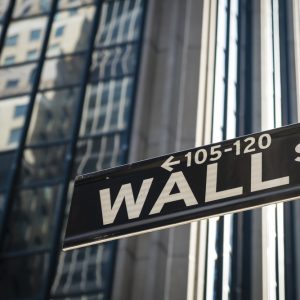
How Are the Markets Making All-Time Highs In This Economy?
By: Steve Smith
The economy seems to be in a massive recession, with millions of people unemployed, companies not reopening after the shutdown, a spike in foreclosures, and a laundry list of generally bad economic news…
And the markets seem to be in a massive bull run.
How is that possible?
The short answer is that the market is completely disconnected from the underlying economy, and has been for decades.
After the 1792 financial panic, and in an attempt to create some rules and add some professionalism, to the “financial worlds,” the NYSE was created under a tree on Wall Street (called the Buttonwood agreement after the buttonwood tree it was reportedly created under).
Back then, the idea was that the stock market would be a reflection of the underlying economy. If the economy was doing well, the stock market would reflect that in higher stock prices.
If the economy wasn’t doing well, the stock prices would go down.
It was a simple formula that makes sense to almost anyone. However, today that formula is out the window…
Today what happens in your local economy is just too small to have an effect on the stock market.
In addition, stock prices are affected by how other asset classes are performing.
So even in an economic downturn or recession, stock prices can continue to go up because bond rates are suppressed and investors still want to get a return. So the stock can go up because money is flowing into the market even though the fundamentals aren’t there.
That’s why chart reading and technical analysis is so important when investing and trading today. As counter-intuitive as it may seem, a company’s financial strength may not be the most important indicator of the short-medium term stock price movement.
Take for example cruise ship companies. Stock prices are strong even though no one is booking cruises in the post-COVID world. Or Hertz, who filed bankruptcy only to see stock prices shoot up almost 10-fold after the initial drop in Mid-June.
Hertz even issued more stock, which is an unheard-of thing for a company in bankruptcy to do.
My point is, you can’t just trust the financial strength of a company. Stocks are often traded as disconnected financial commodities that are valued based on what someone is willing to pay for them rather than any underlying value.
Keynes called it the animal spirits.
It’s one of the reasons I wrote this report about what I call Main Street Derivatives.
By using leverage with a well-defined, predetermined downside, and unlimited upside, main street investors and traders can easily make Wall Street type returns.
To Your Investing Success,
Steve




